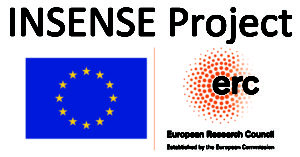New paper in JoN
Reward selectively modulates the lingering neural representation of recently attended objects in natural scenes.
Hickey & Peelen
Theories of reinforcement learning and approach behaviour suggest that reward can increase the perceptual salience of environmental stimuli, ensuring that potential predictors of outcome are noticed in the future. But outcome commonly follows visual processing of the environment, occurring even when potential reward cues have long disappeared. How can reward feedback retroactively cause now-absent stimuli to become attention-drawing in the future? One possibility is that reward and attention interact to prime lingering visual representations of attended stimuli that sustain through the interval separating stimulus and outcome. Here we test this idea using multivariate pattern analysis of fMRI data collected from male and female humans. While in the scanner, participants searched for examples of target categories in briefly-presented pictures of city- and landscapes. Correct task performance was followed by reward feedback that could randomly have either high or low magnitude. Analysis showed that high-magnitude reward feedback boosted the lingering representation of target categories while reducing the representation of nontarget categories. The magnitude of this effect in each participant predicted the behavioural impact of reward on search performance in subsequent trials. Other analyses show that sensitivity to reward – as expressed in a personality questionnaire and in reactivity to reward feedback in the dopaminergic midbrain – predicted reward-elicited variance in lingering target and nontarget representations. Credit for rewarding outcome thus appears to be assigned to the target representation, causing the visual system to become sensitized for similar objects in the future.
